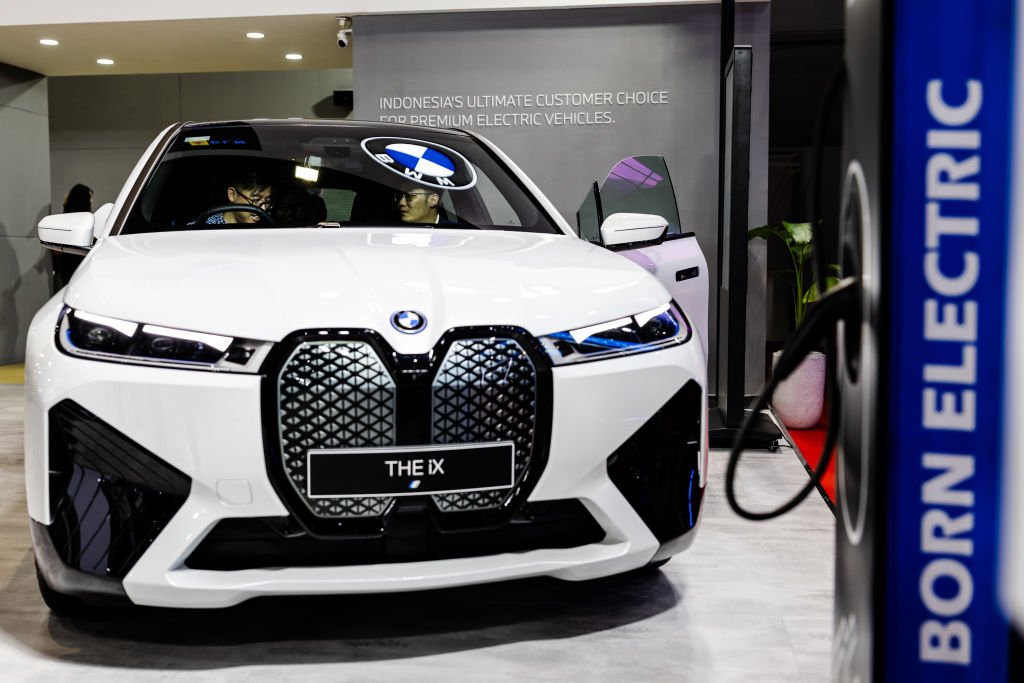William Todts is Executive Director of T&E, a European umbrella for non-governmental organisations working in the field of transport and the environment, promoting sustainable transport in Europe.
Head to the Mercedes-Benz museum in Stuttgart and you will find the 1886 Benz Patent-Motorwagen, widely considered the world’s first car. Innovation and competition are at the core of an incredible success story which saw Mercedes, BMW and Volkswagen transform Germany into the beating heart of the global auto industry. As we enter the electric age, European carmakers are finally showing that they can also produce world-class EVs.
If you’ve been reading the headlines over the past two years you would think the European car industry is cooked. Yes, EU carmakers on the whole have been slow to electrify, opening the door to Chinese competition. But the truth is far more optimistic.
Take BMW. A quarter of the company’s sales are already fully electric. The company is comfortably meeting the EU CO2 regulations. Now the Bavarian carmaker is launching the Neue Klasse, which CEO Oliver Zipse describes as the new standard for electric cars. Meanwhile, the best-selling electric car in Germany is not a Tesla or BYD but the VW ID 7. In France, the Renault 5 – one of the first Vehicle-to-Grid capable ‘battery on wheels’ built in Europe – is topping the charts. In the first half of 2025 alone, European manufacturers’ EV sales grew by nearly 40%.
Competition is forcing European automakers to produce better cars and sell them for lower prices. This is a good thing. It’s this competition that took us from the three-wheeled 1886 Benz Patent to Mercedes’ newest electric car, which can drive from Stuttgart to Brussels in one go and which can charge 260 km of range in 10 minutes.
Why this sudden burst of innovation? You guessed it: The car CO2 regulations spurred this progress by requiring EU carmakers to sell electric cars, and to invest and compete.
So why are EU carmakers, led by the Mercedes CEO Ola Källenius, lobbying like crazy to slow down Europe’s transition to EVs and weaken the laws that underpin the transition?
The truth is the auto industry faces some big challenges. Combustion engine sales in China have collapsed, making a big dent in German profits. The European car market has returned to growth (+5.9% in July) but is still below pre-COVID levels. On EVs, they face fierce competition from Tesla and Chinese automakers. When the going gets tough, century-old incumbents will always hark back to what they know best.
Take Mercedes. They’re Europe’s absolute laggards on the 2025 CO2 standards and will only comply by buying credits (from Volvo-Polestar). The company entered the EV race late, launched some unpopular EVs, and is now forced to fast-track investments in better, more attractive electric cars. The all-electric GLC will be the first built on the company’s new MBEA platform.
Of course, those investments show up on Källenius’ balance sheet and will impact his company’s short term profit margins. That’s why he’s trying to deflect the blame onto the EU. But BMW’s success shows the problem is not the EU – it’s Mercedes.
So do we want less competition on EVs to allow Mercedes to postpone better electric cars and pay higher dividends for the next few years? That’s a sure way to ruin the long-term future of Europe’s car industry and its two million or so workers.
The world is going electric with or without us. Europe’s carmakers must embrace competition and produce the electric, digital, and autonomous cars of tomorrow. Otherwise they’ll be consigned to history.





